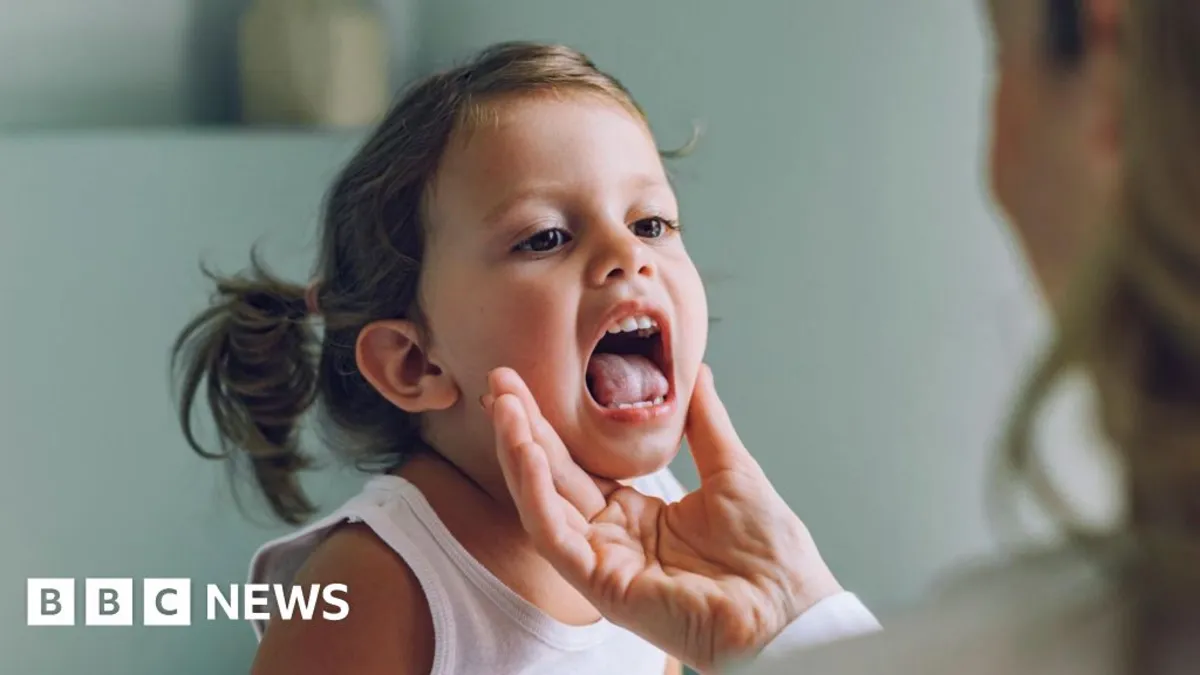
The shift towards cashless payments in society may have resulted in an unexpected yet positive outcome, according to surgeons. They have observed a significant decline in the number of children requiring operations to remove swallowed coins and other foreign objects. This finding comes from a thorough examination of hospital records in England, spanning from the start of the Millennium to 2022.
The research, conducted by experts in According to data from the UK Payments Markets Survey' href='https://breakingon.com/search/ear-nose-and-throat-ent3cb-medicine-highlighted-a-dramatic-decrease-in-procedures-to-extract-foreign-objects-including-coins-from-childrens-throats-airways-and-noses-by-2022-the-number-of-such-cases-had-dropped-by-nearly-700-marking-a-significant-milestone-historically-coins-constituted-over-7525-of-the-objects-swallowed-by-children-under-six-years-old-as-noted-in-a-medical-journal-report3cp3e3ch33elink-between-cashless-transactions-and-reduced-incidents3ch33e3cp3eaccording-to-data-from-the-3cb3euk-payments-markets-survey'>Ear, Nose and Throat (ENT) According to data from the UK Payments Markets SurveyLink Between Cashless Transactions and Reduced Incidents
Link Between Cashless Transactions and Reduced Incidents
In addition to coins, the researchers identified various common objects that children often swallow or inhale. These include beads, pins, baby teeth, screws, and even food items. Peanuts and peas, for example, can occasionally be inhaled and become stuck in the airways. As the medical community focuses on these issues, there is growing concern about newly emerging hazards, particularly shiny objects like button batteries and magnets, which can pose serious health risks if swallowed. These items can lead to life-threatening complications within hours and require immediate medical intervention, as highlighted by Akash Jangan and his colleagues in their publication in The Annals of the Royal College of Surgeons of England.
The open-access web version of the study, released in June 2024, reveals alarming statistics from 2012 to 2022. The data indicates a 29% reduction in foreign-body removal procedures, decreasing from 2,405 to 1,716. Moreover, the number of procedures to remove swallowed objects fell from 708 to 513, while extractions from the nose dropped from 1,565 to 1,081. Additionally, there were only 10 fewer respiratory-tract procedures, down from 132 to 122.
ENT surgeon Mr. Ram Moorthy, a member of the Royal College of Surgeons of England who did not participate in the study, commented on the findings. He expressed optimism regarding the reduction in children swallowing coins, stating, "This study shows how new technology can make children safer in ways we didn't intend. However, there are still hazardous items that require our attention." He emphasized the importance of vigilance regarding dangerous objects like button batteries and magnets, which can cause significant harm if not kept out of a child's reach.
In conclusion, the transition to a cashless society has led to fewer children needing surgical intervention for swallowed coins, showcasing an unintended advantage of modern payment methods. Nonetheless, continued awareness and preventive measures are essential to ensure children's safety from other hazardous objects.